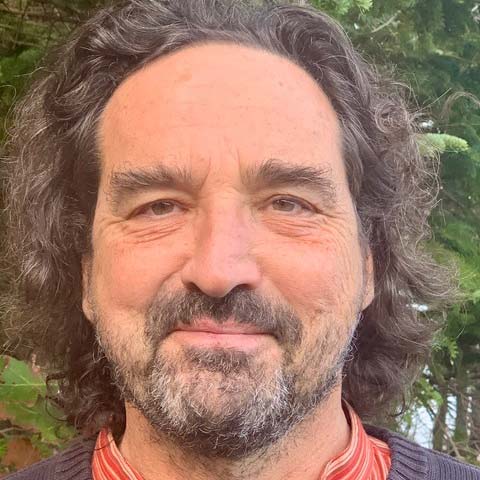Ben Ferencz (1920-2023): In His Own Words
In July 2020, Ben Ferencz, the last remaining Nuremberg prosecutor who died earlier this month, sat for a Dimensions in Testimony Education interview.
Below are excerpts from the three-day conversation, which was released today.
On his Place of Birth
I was born in the same bed as my sister was born a year and a half before me. We were born in different countries because when she was born it was called Hungary, and when I was born it was called Romania. And that taught me an important lesson: it doesn’t matter what the country is called, what’s important is how they treat their subjects, their people. And in both Hungary and Romania, they persecuted the Jews equally.
On Entering Concentration Camps After Liberation
I think they were all basically similar. The scene was indescribable because the ground was covered with dead people. Piled up in front of the crematorium were skeletons. These were human beings, had been human beings, and they couldn’t burn them fast enough, so they piled them up and they looked like skin and bones. They had been people and they were burning them. And the smell was throughout the camp. It was total chaos…And those that [were] still more or less alive [were] dressed in rags, [could] hardly move, the typical inmate.
On the Einsatzgruppen Trial at Nuremburg
[The mobile death squads] were called Einsatzgruppen, which was a nondescript name deliberately. Their job was to kill every single Jewish man, woman, and child they could lay their hands on. And my job was to collect the evidence for all those trials. When I came upon secret reports indicating how many people had been killed and I tabulated on my little adding machine over a million men, women, and children killed because they were Jews or Gypsies or other perceived enemies of the Reich, I persuaded my commander there, General Telford Taylor…to put on a new trial for these special extermination squads.
So, I became the chief prosecutor in what was certainly the biggest murder trial in human history.
[My opening statement was] ‘It is with sorrow and with hope that we here disclose the deliberate murder of a million innocent people.’ I meant by that the sorrow was for the victims and the hope [was that] we could prevent it in the future. That’s what I meant by that. And I said, ‘Vengeance is not our goal, nor do we seek merely a just retribution. The case we present is a plea of humanity to law.” And that was my theme.
I rested my case in two days. And I convicted all of them. The trial went on for about four months with their lies and alibis. It didn’t help, they were all convicted. Thirteen of them were sent to death.
And there was no real regret. No one had ever said to me any word indicating that they were sorry for what they did. They denied that they did it and they knew damn well they were lying. And that was it.
On the Lessons from Nuremberg
The main lesson from Nuremberg was and is—and I hope it will remain—that war can make murderers out of otherwise decent people, including mass murderers.
The trial of 22 defendants for murdering a million people—that can’t be a satisfying trial. All we could do was get a principle established: you can’t treat human beings like that and get away with it. And I helped to establish that principle.
Holocausts don’t just happen like a pandemic virus. Holocausts are created by people and supported by governments for their own reasons and if the public would say, ‘Hell no, we won’t go,’ they could stop it from happening. The power really lies in the people.
And so, I can look back on my life now and say that I have not achieved my goal, but I never expected to achieve it in one lifetime because war has been glorified for centuries and you can’t just take it in one generation and turn it around, and say it is a terrible thing.
Never give up, never give up. And that’s what I believe will save us. Maybe. I hope so. I won’t give up anyway.
Goodbye.
